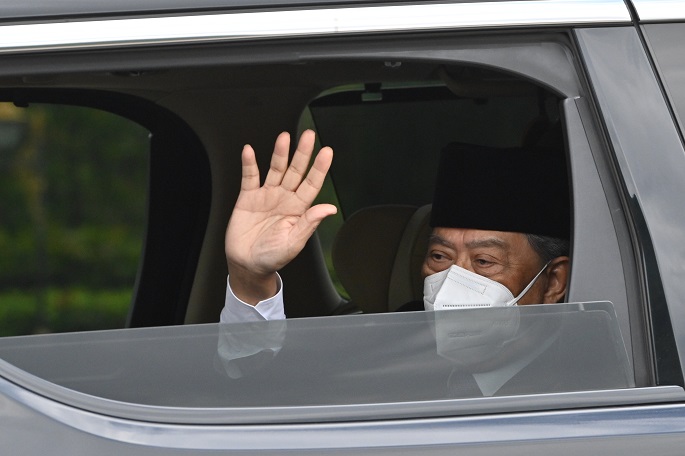Malaysian PM resigns after losing majority in parliament
Published : 16 Aug 2021, 16:03
Malaysian Prime Minister Muhyiddin Yassin announced his resignation on Monday after losing majority support in the lower house of parliament, reported Xinhua.
In a televised speech, Muhyiddin said he and his cabinet had resigned as demanded by the federal constitution as he no longer enjoyed the support of the majority of members of parliament (MPs).
He explained that although he had initially sought to test his support in the parliament, the withdrawal of support by a dozen of MPs from his own coalition and the rejection of cross-party cooperation by the opposition had left him with no alternative.
"With that, I have lost the support of the majority. So, there is no need for my legitimacy as prime minister to be determined in the parliament," he said following a meeting with Malaysia's King Sultan Abdullah Sultan Ahmad Shah.
In a separate announcement, the National Palace confirmed that Sultan Abdullah has accepted Muhyiddin's resignation.
"His majesty accepted the letter of resignation from the most honorable Muhyiddin Yassin as prime minister and the posts of the entire cabinet with immediate effect today (Monday)," it said the statement, adding that Muhyiddin would continue as a caretaker prime minister until a suitable replacement is determined.
Muhyiddin became the prime minister in March last year following the abrupt resignation of former Prime Minister Mahathir Mohamad, but he has been holding on to power with a slim majority in the parliament.
Muhyiddin's resignation came after Ahmad Zahid Hamidi, president of the United Malays National Organization (UMNO), a component of the ruling Muhyiddin coalition, withdrew UMNO's support for the prime minister together with a number of UMNO MPs.
NO IMMEDIATE SUCCESSOR
According to Malaysia's constitution, the king, as the country's supreme head of state, appoints a parliament member as the prime minister, whom in his view commands the majority of the MPs.
With a split political landscape, leaders of political parties are now huddling together to get enough MPs for the parliamentary majority.
The opposition is pushing for former deputy prime minister Anwar Ibrahim to become prime minister. Some analysts also predicted that UMNO could still work out a solution with Muhyiddin's party and his allies under the current coalition but with UMNO holding the premiership.
Former Prime Minister Mahathir has proposed a national recovery council consisted of technocrats and experts to overcome the political impasse.
SIMILAR CHALLENGES AHEAD
No matter who will succeed Muhyiddin, analysts said that any incoming government will have to deal with the triple threat of political instability, a raging COVID-19 pandemic, and the resulting economic difficulties.
Political observer Azmi Hassan said the immediate problem that any incoming government and PM would need to resolve is the political instability facing the country which will allow it to effectively respond to the pandemic and shore up the economy.
"The first thing that the new PM will have to do is to secure this broad support to form a government that is stable enough to appoint ministers that will be there for their competency, not for their political loyalty.
"We need a government that will formulate policies not out of political considerations but really to solve the problems caused by the pandemic. This is critical," he said.
Failing to contain the pandemic has cost Muhyiddin's government much of its public support despite its national vaccination program.
Malaysia reported another 19,740 new COVID-19 infections, the Health Ministry said on Monday, bringing the national total to 1,424,639.
Oh Ei Sun, principal advisor for Malaysia's Pacific Research Center, said any incoming PM and government will face the same challenges as the outgoing one to get a grip on the pandemic and then to revive the economy.
"Expectations are very high due to the desperation of the situation. The new government will be expected to deliver, if not in six months, then by the end of the year. Otherwise they will start to see the same demands to step aside," said Oh.


